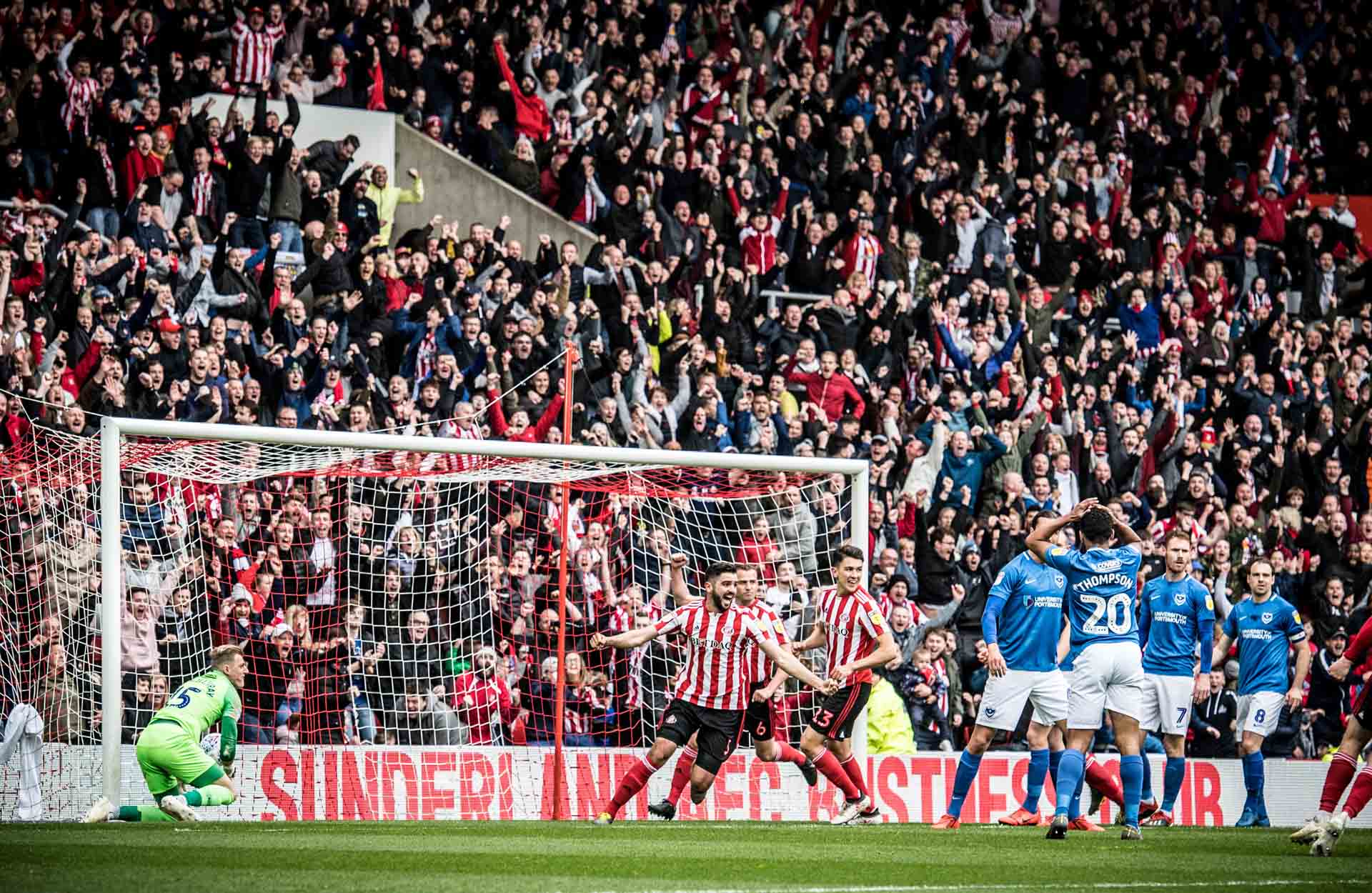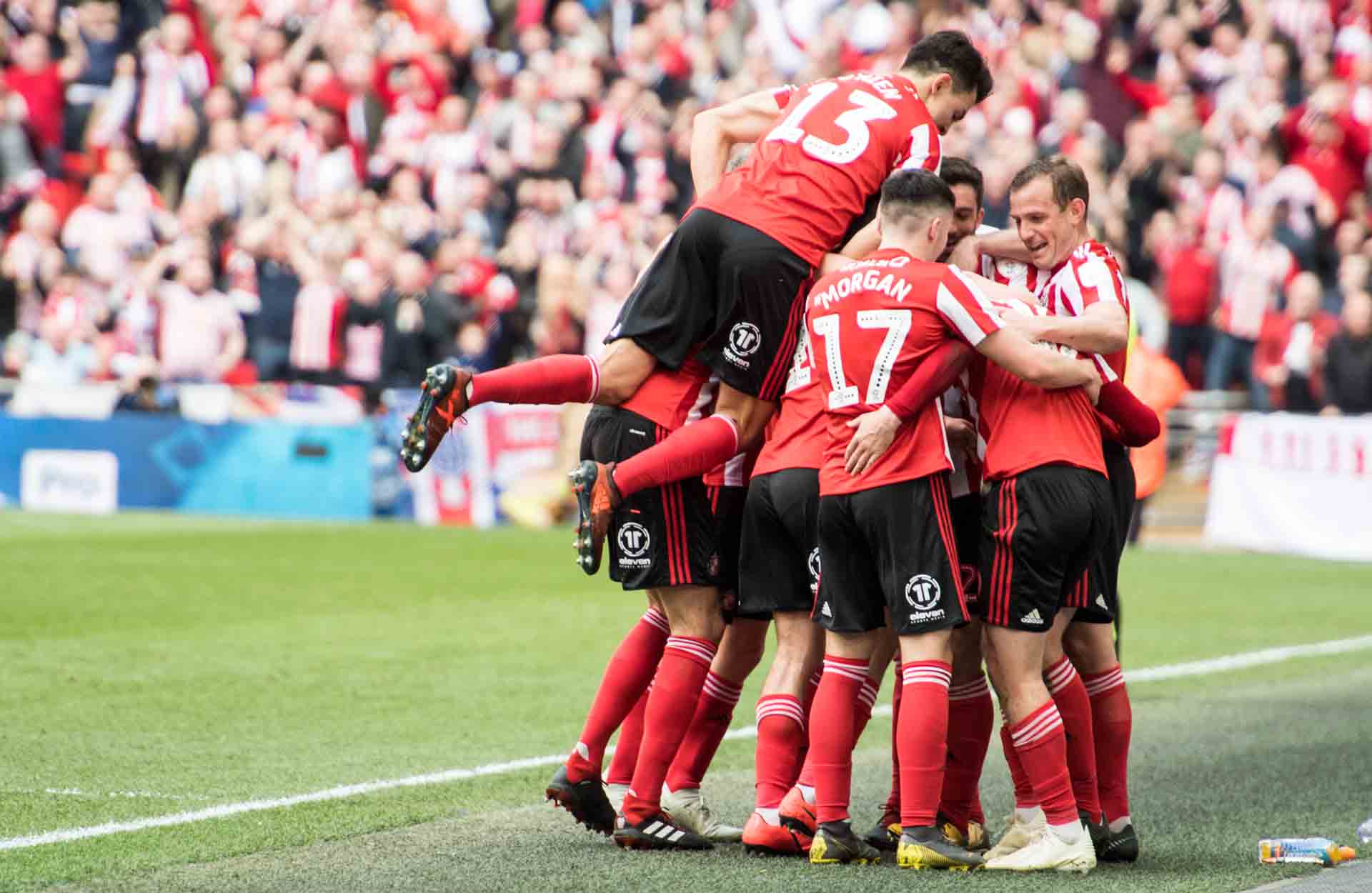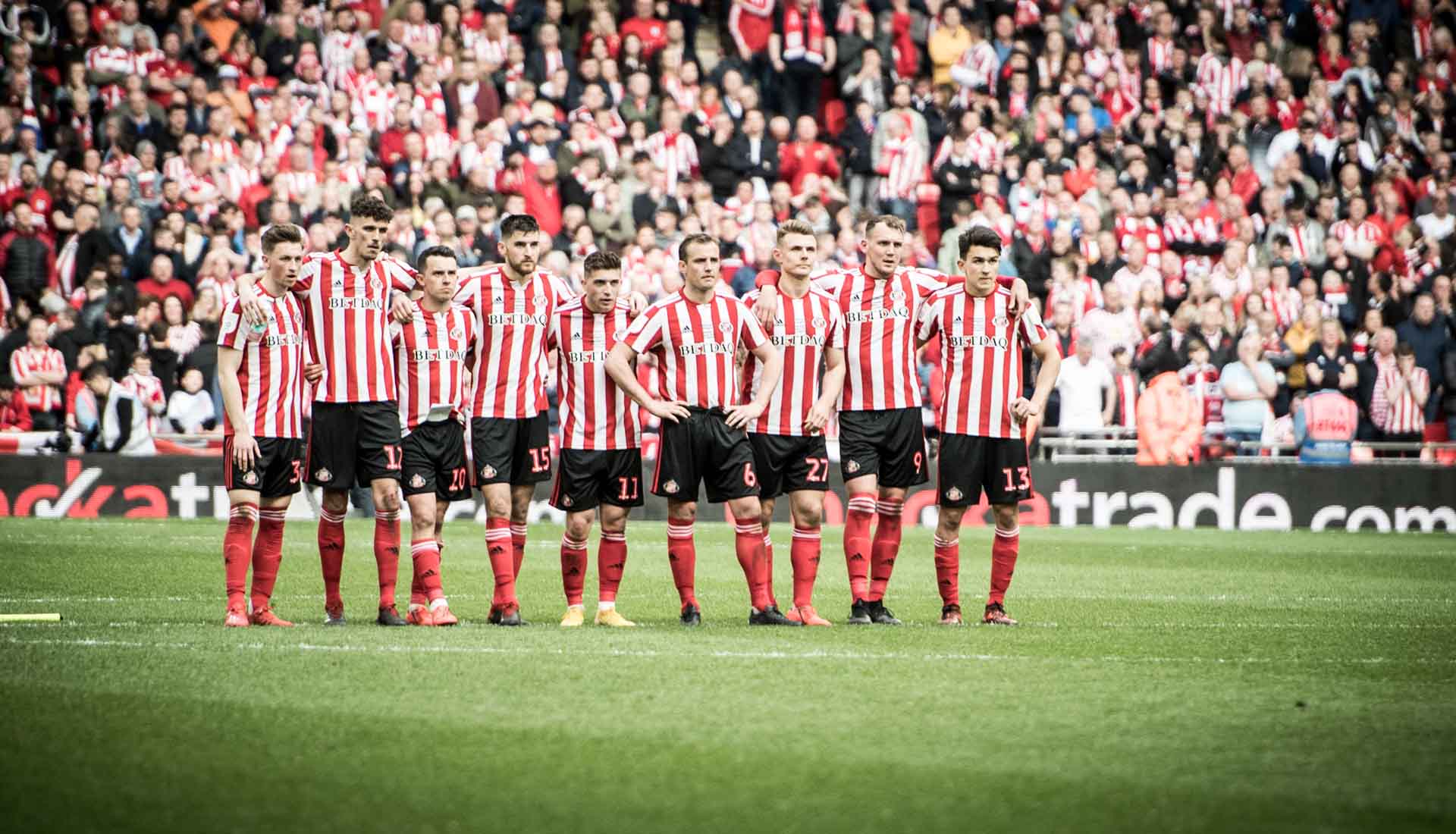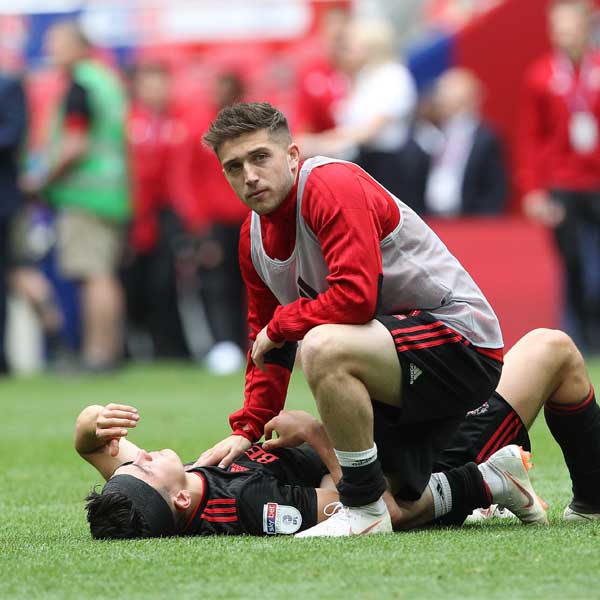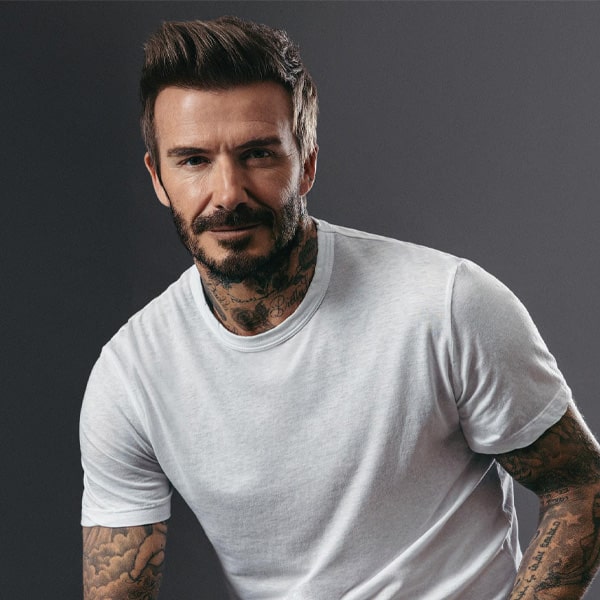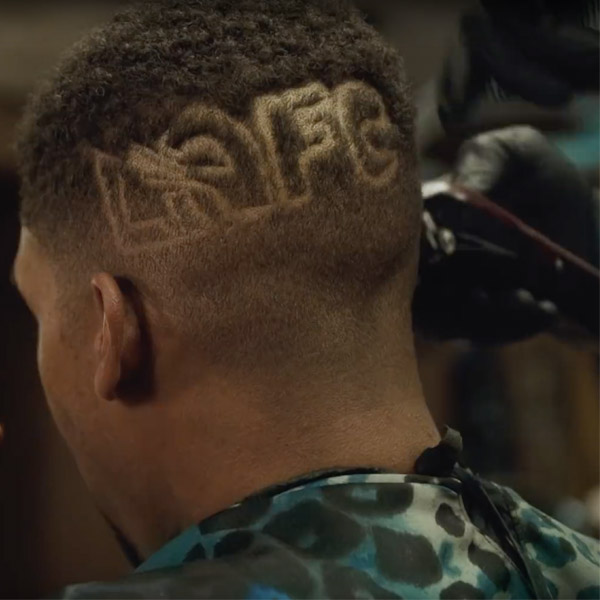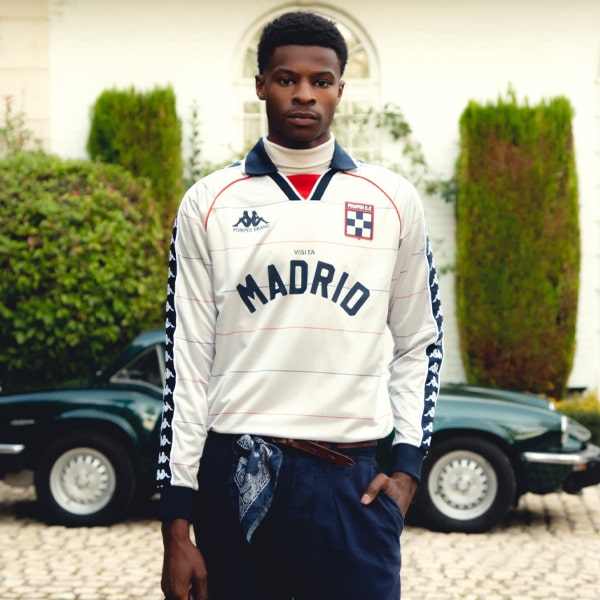Sunderland ’Til I Die launched in December 2018, peeling back the layers of pain and anguish surrounding the club as they suffered yet another relegation. And, not content with the levels of ammunition that season one gave to opposition supporters, the docu-series is set to return for a second season.
But as much as Geordies enjoyed ridiculing their neighbours, season one enjoyed a decent amount of critical and commercial success, so much so that it kick-started the football-focused docu-series craze that has swept across streaming platforms. As a result, season two was given the green light without much delay, and we were able to speak to Fulwell73’s Leo Pearlman, executive producer of the series, about the process behind bringing the story to the screen.
The first series unearthed a lot of home truths about football behind the scenes. What was the reaction of the club off the back of the first series?
I would say that the reason why the club agreed to do the first series was because the owners were trying to find a buyer for the club and they wanted a higher price for it. So they believed, rightly so, that getting a show on Netflix in front of 145 million eyeballs would increase the brand value. I don’t think it did anything negative in that respect. It certainly drew eyes and attention on Sunderland as a city and a club and would have had some impact on bringing in the interest that it did.
What would you say is the art to having such candid success in gaining the trust of the players and staff?
I think it became quite obvious to us quite early that the city itself and the club are so intrinsically entangled that you can’t tell one story without the other. When it became obvious that the club was going to have a terrible season and the performances on the pitch were poor with defeat after defeat, we started to look at where we could gain some other inspiration.
Fulwell as a company are always looking for the joy, the uplifting side of any piece of content. It’s fine and one must show the darker side and the downside but where can you find light to go along with that darkness? And for this show it was with the fans, the supporters and the real people who are there through thick and thin. So it naturally became a show about the people and the city. That’s probably where we managed to find that nuance so well.
So much happened in that first season, there’s so much drama - you couldn’t predict such a ride but did you expect it to be turbulent?
I think that what you hope for as a filmmaker in this perspective is that it’s just not middle of the road. What you don’t want is Tofu. It doesn’t matter if it tastes like shit or tastes amazing but it can’t be vanilla. So whether Sunderland were going to storm the league, whether they were going to be in playoff contention or whether they were going to be in a relegation battle - all of those options were going to give us the drama we needed for the show, the only thing we really didn’t want was mid-table insignificance. Sunderland don’t really do mid-table insignificance so that was always guaranteed.
How did that shape things going into the second series then? Did you feel like there was a story you wanted to tell from what happened in the first series?
We were always in two minds as to whether we’d do a second series. I would argue that if the takeover hadn’t happened, when it did, at the end of the season and if Sunderland hadn’t beaten Wolves 3-0 who had just waltzed the league then it was tough to argue or justify why you’d want to follow a club now in League One. However, because you’ve got that moment of joy at the end, because you’ve got that takeover of the club, it gave everyone a really big boost. The win against Wolves planted the seed that the next season would be better and then you start to think, “ok, if season one is about disaster, then potentially season two could be that phoenix from the flames moment”. As we know, that also didn’t quite play out the way we hoped but I actually think season two is different and has a new angle. That’s because of Charlie Methven and Stewart Donald (Club Directors) more than anybody else.
We can sense some happiness when you mention that win over Wolves, can you tell us about your personal affinity to Sunderland?
I was born in Sunderland. I’ve been a Sunderland fan since before I was born. My mum and dad were having a meal in Newcastle and my mum went into labour. Instead of taking a five minute drive to the hospital in Newcastle, he drove half and hour to the hospital in Sunderland because as he put it, he “wouldn’t have his first son born in the wrong city” [laughs]. I’ve been a Sunderland fan since day dot.
Woah! Did that make the process of making the documentary harder in that case as you’d need to separate personal attachment?
You do your best to separate the two head-spaces, one as a filmmaker and the other that has all the loyalty and passion as a football fan but I think that the fact that Sunderland fans were behind this, is what gave the club the confidence that we could be trusted. The club had no editorial control and had no say on what went into the programme but we always said that this is not a muck raking exercise. If something bad happened, we were always going to cover it, and we did. There were a number of things in the first season that happened on and off the pitch that I’m sure the club would have preferred we didn’t focus upon but at the same time, we also said that they can trust us to do justice to the story and tell the truth. Without that level of trust, I don’t think we would have got the access that we did and we wouldn’t have been able to make the show we did.
Football is so tribal - It’s quite amazing that one club could bring in the eyes of fans of other clubs from all over the world - was it always the aim to create something that tailored for a wider audience than just the football crowd?
I really do believe that 99.9% sports fans have an experience of watching their team, and this doesn’t matter whether it’s basketball, American football, ice hockey or soccer, the vast majority have an experience of watching their team which is miserable. We watch our teams lose most of the time. There is an occasional glimmer of hope. You might have a good cup run or beat one of the big teams, you might stay up when you should have been relegated but the vast majority of the time, you sit there thinking to yourself, “why do I bother”. So we made a show that spoke to the vast majority of sports fans that reflects their experience and speaks to them about their team. If you watch something like the Manchester City documentary, which shows a team scoring 100 goals and winning the league, very few people will understand what that’s like. Maybe Barcelona fans and Man City fans but not many when you look at the bigger picture. So we’ve made something that people from across the world, who are depressed by their team, who turn up week-in, week-out and come back the next season. They do so for other reasons, like the community aspect because it is just something they do. It’s a beautiful thing that human beings do.
What’s it been like to work with Netflix from a creative perspective? Did this unshackle limitations you may have had with budgets if working with a different broadcaster?
From a creative perspective, they have been absolutely fantastic. The best we’ve ever worked with. I’ve never had conversations with a documentary buyer where they suggest that maybe there’s not enough (budget) in there in certain areas. Which is something new. Also from a creative perspective, they understand how to help and assist a film maker rather than impede. Everything was about pushing us further, making us think more about narrative arc, more about story and because they have such vast experience within their company and they create so much content, they also know what works. I cannot speak highly enough about working with Netflix for this show.
On the creative - the pitch level shots bring such a sense of realism to the programme – was this a chance to apply an artistic lens to football? Would be great to see games broadcast in this way…
Yeah I definitely think so. One thing that we always try and do in all our work is push the creative as well as the story. What makes creating this kind of content interesting is the combinations between a beautifully composed shot and a more shakey shot that gets you into somewhere you shouldn’t be. I think if you just have one or the other, it feels like its a contrived piece of artistic film making or it feels like it was made for 50p and you’ve done it yourself.
An example is when we made a film about Mo Farah ahead of the last olympics. There’s an incredible drone shot which we captured in Ethiopia, got knows how high up it was in the mountains as it showed him running. It really was one of the most beautiful shots I’ve ever seen and it was hard cut to him, in bed, a night before a race, filming himself with the camera on his phone and all you can see are his eyes and his nose. It’s pitch black and he’s saying how nervous and panicked he is on the eve of the first race of the season. I think that is the perfect combination of those two styles. Abruptly cutting like that shows the incredible access you have but also shows that there is beauty to be found in every type of film, no matter how it’s shot.
On how football is currently shot, I’d recommend watching some of the old World Cup films. 82, 86, 90 - they were all shot on film and they were so beautifully put together. Low angle shots of the legs, pickups of people at the sidelines - you can tell they’re made by film makers and they’re so beautiful. That was another reference for us with the work we’ve done on this.
Onto the second series - how would you describe the ride the audience are in for?
More drama. Definitely some more success on the pitch though ultimately it doesn’t end how we all hoped. The big difference between the two seasons would probably be the access to the owners. We had incredible access to them this time around. When the new owners came in, they made it very clear that they were going to be transparent with the fans and they were going to be open and honest. It was also in a way I’d say is more open than any other owners of any club, to this day have ever been. So that honesty, transparency and openness is what we got. These are two guys who are exactly the same when both on and off camera and they speak like passionate fans too which is so refreshing. The first season was completely about the inner workings, this season we had incredible access to the new owners who were trying to change and better the club from the inside out. Naturally that has become a large focus of the show.
What is your opinion on football now having been through this process? Has it changed a lot?
I think everyone gets to a certain age when they’re a bit jaded from following their team for so long through so much thin and thin. I’m lucky enough to have two kids, three and five, who are already football mad and obsessed with Sunderland - not fully understanding the pain I’ve been through by supporting them. The kids came to Wembley last year, twice. The five year old thinks they play their home games at Wembley which is a nice thought. That reinvigorates you. It reminds you about what it was like to not have a care in the world and means you stop thinking about what’s really going on at your club or in football in general. I’m trying to look through their eyes again with it.
It’s actually going to land at a great time for people so hungry for sport, to be able to consume something like this - how do you feel knowing there will be even more eyes on it based on the success of series 1?
It’s a silver lining I guess… but we’d all rather not be in lockdown. I think on that note, there is a pretty big message to take from this and not one that we intended. The message of community and togetherness, the message of spirit, the message of hope - that’s something that sport gives us on a regular basis. Hopefully this show emphasises that at the very least. Given the situation we’re all in now, I think that’s a message we should all keep at the forefront of our minds.
My favourite part of the second season is the night before the Checka-Trade final against Portsmouth where over 100,000 Sunderland fans came down to London and took over the capital. In particular, Trafalgar Square. I have goosebumps just thinking about it now. Given the situation we’re in right now, that’s the type of situation we should all hold on to. We will get back to that. We will get back to going to stadiums and being crammed in with 40,000 people together and maybe we’ll all appreciate it a little bit more given all we’ve been through, together. Hopefully the show can remind people, just a little bit about how great that community can be and how strong we are together when we support one another.
Sunderland ‘Til I Die season two is available on Netflix from 1 April.





